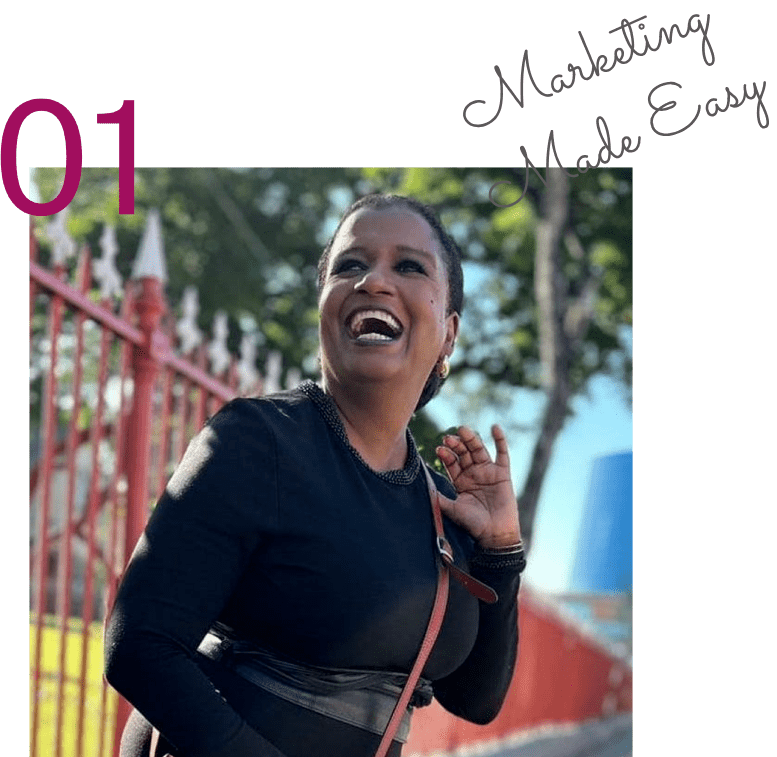In the 70s (those were the days) actress Mary Tyler Moore made writing seem like the dreamiest profession on the planet ( ***cue the hat toss***)
Table of Contents
ToggleBut it was Don Draper of Mad Men, that made copywriting feel and look ultra cool.
He showed the world that there’s a difference between spinning words for a story and crafting words that sell.
Yes, I’m going there.
Always back to the foundation, so we can put on the fancy AI bells and whistles later on.
So what’s copywriting?
Well for starters, let’s define what it’s not.
It’s not journalism or scriptwriting, rhetoric or book writing, journaling or speech writing, etc.
Copywriting = marketing with words.
And it takes up space both in the online and offline world.
It lives to light up a brand’s purpose, and give it a voice that’s distinctly recognisable.
I like to think of copywriting as the words that market your messages + images. And it has one aim only: to convert.
There is not a day that goes by without me writing copy.
Whether it’s a blog post, an ad for Meta, my newsletter, a caption, a thread, or a headline~ I’m writing copy.
In my past life, it was brochures, magazines, and client campaigns.
So now you see why I embraced AI from the start.
Not because I use it to write my copy, on the contrary, I never do.
AI didn’t replace my original writing; it just made it better.
My scripts became tighter, my ideas sharper, and my processes faster. With AI, I wasn’t just writing more—I was writing smarter.
How I use AI to write smarter
I’ve used ChatGPT specifically to help me generate ideas, refine my copy, edit and make my writing astonishingly smooth.
That’s what I want for you too.
You see, I believe in the art and technicalities of copywriting so much.
I believe in its power to convert…
…To make plain words flit like ballet dancers on stage.
To change 30 words into 13 without any loss of its magic.
To get the heart of a client’s WHY.
To reach customers.
To become discoverable on Google (yep, my SEO strategist lives in my head)😉
And I also believe AI’s ability to make us better at the craft.
So let’s dive into the tips, tools, and trends right now so you can elevate how you use AI in copywriting.
No. 1| How To Use AI In Copywriting As A Seasoned Writer.
I know if you’re reading this blog post, you probably fall into one of two camps.
Camp 1: You love writing and are already pretty darn good at it.
Camp 2: Copywriting feels like a chore, you’ll do it only because you must or can’t afford to outsource it.
I’m firmly in Camp 1, so let’s start there.
Firstly, I’ve guided ChatGPT to use my brand voice (HINT: I teach all the how to’s in my AI Copy Collective Course).
But whether you love writing or dread it, the principal way I use AI in copywriting is as my writing assistant, researcher, and editor.
AI As My Writing Assistant
Before I write, if I hit a brick wall, I tell ChatGPT my topic of interest and ask it to give me five topics to explore.
Right there, in an instant, it eradicates my writer’s block and saves me heaps of time overthinking and researching.
HINT: Don’t forget to ask your AI system for its research sources. That way you can assess relevance, worthiness and even do all your attributions.
Now, I never accept all the ideas AI spits out—a lot will need challenging, some tweaking, or others tossing.
But the fact that I’m not spending hours overthinking is a time-saver and game-changer.
Once I have my starting point, I go deeper.
As an experienced copywriter, I ask ChatGPT to base its topic suggestions on what people are currently searching for.
That way, I’m doing half of my SEO work upfront before I even tap on my keyboard.
AI As My Researcher
If you’re like me and love data then you already know how it brings copy to life.
With ChatGPT, I can ask for specific data points, statistics, quotes. attributed note, that’ll help my work connect deeper.
HINT: Always set parameters for AI. For instance, not only do I ask for sources. I’ll constrain it by instructing it on how I want my data laid out. I’ve also often given it a link and asked it to summarise its content. This allows me to assess relevancy before the moon rises.
Yes ma’am, blogging in the pre-AI age was no joke.
Ready for another sweet spot?
When your copywriting includes data, facts, quotes, it holds a light up to logic.
When it comes to your customers opening up their wallets, remember while buy with their hearts, they also justify purchases with their heads.
AI can help you bridge the gap between persuasive copy and data driven backgrounders in a minute.
Errr… but first you really need to know how to build a good prompt.
AI As My Editor
In my blogging workflow, I call on ChatGPT to act as my editor-in-chief.
It cleans up grammar, fixes punctuation errors, and polishes the tiny details that can deflate some otherwise powerful copy.
Editing took me eons to complete before ChatGPT, even with Grammarly.
But here’s something else that’s magical about AI’s editing chops.
It acts as a silent but experienced partner in shaping ideas—refining them, making them tighter, and amplifying the magic of what I’ve already written.
HINT: Need visuals? Ask tools like Sora to build your graphs and charts. Data-driven visuals can elevate your writing while saving you precious time
Like I said, I’m facts-driven, maybe that’s not you.
Still is AI invaluable for making copy sharper, smarter, and more impactful.
Don’t sleep on this benefit.
Because here’s the truth: the proof of your copy is often in the pudding—and AI whips up that pudding like it’s nothing.
No. 2 | How To Use AI In Copywriting As A Non-Writer
Firstly, can we acknowledge that in Camp 2 there is no shame in your game if you’re not great with words?
And also, we can all stop denying when ChatGPT helps us to write something.
The real problem arises not when an AI system helps you to craft copy.
That’s no sin.
The cardinal crime is committed when you don’t humanise your copy when you cut and paste, and your copy sounds like AI.
Let me be as straightforward with you as I am with my students.
You can spot AI in copywriting from a mile away, maybe even two.
So here’s how you can fix that.
Teach It Your Tone And Voice.
Copywriting, like any other kind of writing, is a workflow.
And as someone who may have a love-hate relationship with the craft, I need to you consider ways you can teach ChatGPT your voice. I go through the different ways in my AI Copy course.
If you know your brand voice, make sure you share it with your AI system.
For instance I copy and paste verbiage from your brand guidelines doucment into ChaptGPT.
If you don’t have brand guides find three samples of someone’s copy that you love and ask ChatGPT or your fave AI system to study and define its brand voice for you.
If you’re still stuck this guide to finding your brand voice will help
Of course, if you get a brand voice from AI based on just what I told you to do, please remember to make that voice authentic to you.
The output may need some tweaking to match something specific to your brand which GPT may not have known, and that only you do.
Hint: Save your brand voice in GPT 4 and it will remember it whenever you write.
Take Time With Your Prompts When Using AI in Your Copywriting
I’ve already defined AI prompts and how to write really effective prompts
I’m a bull-dogish on this. Because you can’t just give it any old prompt or something simple or vague and then be upset when your copy sounds like a robot. (it. is what it is 😏)
But that’s not how you want to sound, so, you must write structured, solid prompts for the best output.
Structure In AI Copy
Ok we’ve got tone covered and a bit of your personality. But syntax also makes a difference.
For me that’s the constraint that the AI needs to write a more than just a mediocre copywriter.
Ok, let’s go down the yellow syntax road. (Skipped the yellow part.)
How long are your sentences?
Do you use jargon (you must if you must but I don’t have to like it) or better yet, keywords that make you sound like YOU?
Do you start sentences with “and” or “but”? What are your unique phrases?
Do your sentences contain short lines, like mine?
You see where I’m going with this?
Rules and constraints matter when you use AI in your copywriting, especially if this is your cup of tea.
So feed it what you like to see as its output: word count, character count, passive or active voice etc.
Your style is so important.
It like the nitty gritty of this, and I take time to make sure I feed AI my way of communicating my stories,
It’s the small stylistic details that will shift how you leverage AI for copywriting. And for the better too!
My gift as a blogger/ copywriter is to write like I talk: relaxed, conversational and yet instructional. Warm but with authority.
To aim for your AI to get closer and closer to your voice you need to practice fine tuning.
In AI Copywriting Specificity Matters
The more specific you give the bot, the better output you’ll get back.
Ok, let’s rewind that.
The better the prompt you give to the AI, the more effective it will be as your copywriting assistant.
Think of it like using a washing machine.
I can’t begin to tell you how many times I ruined my delicates before I found out my washer had a special setting for it.
It’s not the washing machine’s fault. It was mine.
Choosing a bad setting on any appliance matters, right?
If you wash a wool sweater on the heavy-duty cycle, it’s going to shrink.
If you use cold water for something that needs a little heat, it won’t get cleaned properly.
It’s not too far of a stretch to say: “Same with prompts, same.”
Your prompts are the settings that guide the AI.
Structure them well, get into the weeds of what you want and you’ll get results and output that work.
Be specific. Add structure. Give it your details. It’s all in the minutiae.
I know this sounds like a tale as old as time.
Still, I can’t begin to tell you how much this is often left out when beginners first use AI in copywriting.














